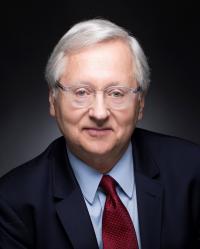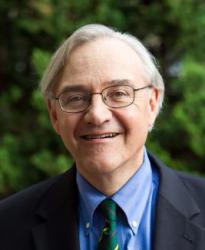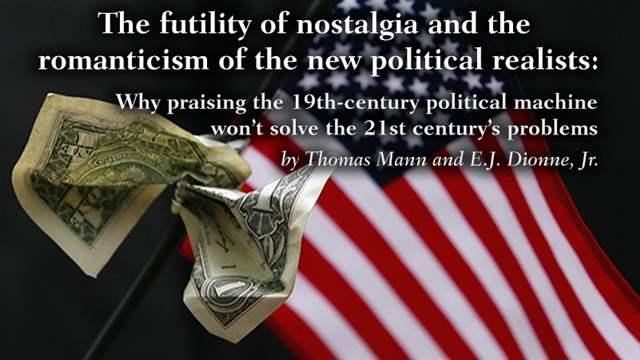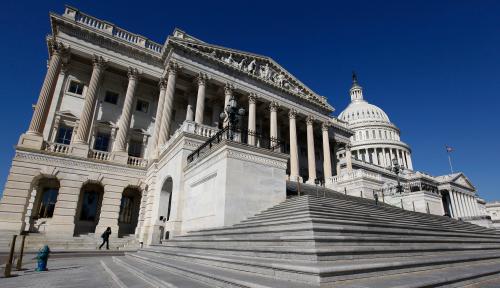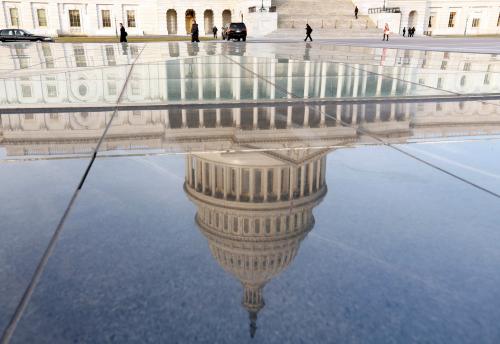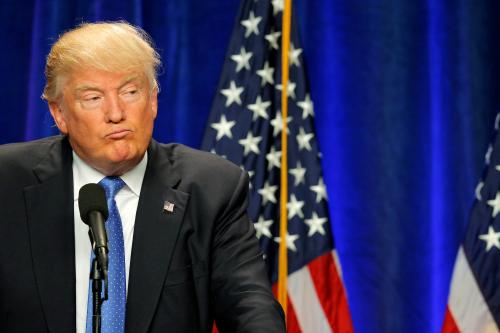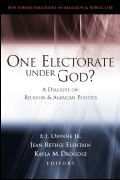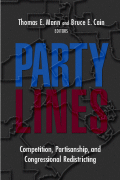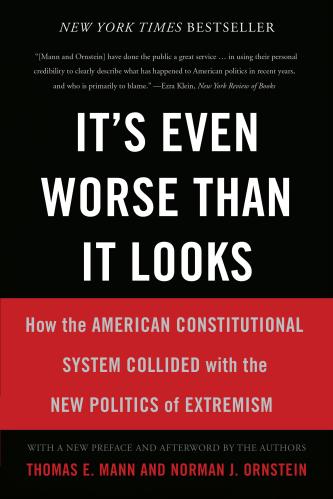In a spirited response to Jonathan Rauch’s argument in favor of restoring machine politics, Thomas Mann and E.J. Dionne, Jr. assert that those who are being labeled “political realists” in fact have a romantic view of politics and are fundamentally mistaken in their diagnosis of what ails American democracy. Mann and Dionne contend that political realist proposed solutions would aggravate — rather than cure — American political dysfunction.
Rauch and the realists have a core difficulty, Mann and Dionne write: Problems realists frequently ascribe to the political reform era after Watergate did not actually appear until the post-Watergate reforms began to break down. Rather, the American political system hit a crisis point later, most dramatically during President Obama’s time in office, when asymmetric polarization took hold, the Republican Party radicalized, and the intense competition between the parties for control of Congress and the White House drove the oppositional politics of today.
Moreover, realists’ focus on procedural matters also overlooks the importance of many other social and political changes over the last several decades, including the growing role of television and other technologies in political campaigns, the emergence of much of the South as a one-party Republican political bastion, the impact of civil rights in realigning American politics, and growing polarization of public opinion along racial, ethnic and generational lines. These substantive changes matter far more than the question of whether it has become harder to make a back-room deal, these authors argue. Mann and Dionne also argue against Rauch’s desire to see more centralized control of the legislative process. As Mann and Dionne see it, enormous centralization of power has already taken place in Congress, particularly in the House, since the mid-1990s, and that far from promoting concord, the centralization of power seems to have given us less of it.
Mann and Dionne assert that:
- Realists offer an idealized view of the American past — and of political machines in particular — that bears little relationship to how earlier American systems worked, and failed to work.
- They utterly misunderstand the relationship of big money to politics.
- The realists willfully ignore that political polarization in the United States is asymmetric.
- There is no dispute over the fact that our two major political partiers have sorted themselves ideologically, but a true realism would come to terms with this development, not pretend that our parties can once again become philosophically polyglot coalitions.
- Many of the realists, usually implicitly but sometimes explicitly, seem to long for a return to Gilded Age politics, precisely what the United States needs to move away from now.
- Mann and Dionne reject the easy use of terms such as “democratic romanticism” and “populism” to describe what ails our political system, arguing that it suffers most of all from a “democratic deficit.”
